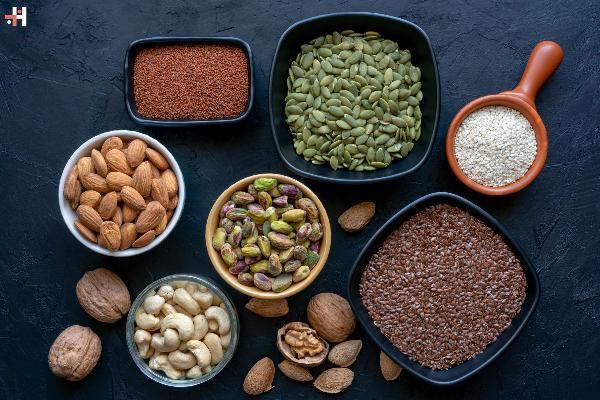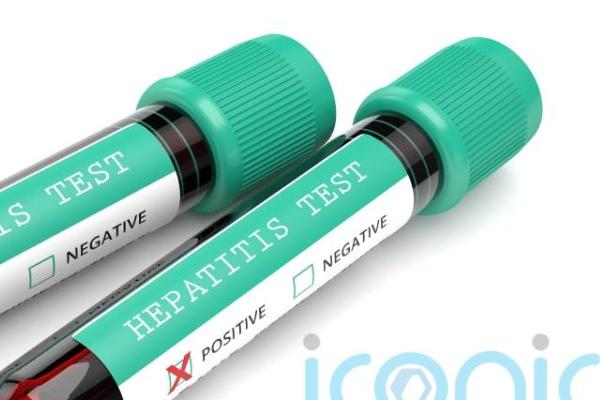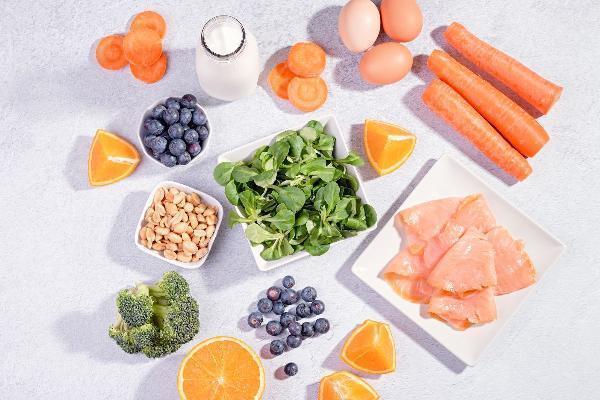The Power of High Protein Seeds: A Nutritional Revolution

Strong 8k brings an ultra-HD IPTV experience to your living room and your pocket.
The Power of High Protein Seeds: A Nutritional Revolution | Healthcare 360 Magazine
The quest for a healthy, balanced diet often leads us to explore a variety of foods, aiming to find the best sources of essential nutrients. Among the many options available, high protein seeds have emerged as a standout choice for those seeking to enhance their nutrition. These seeds are packed with protein, fiber, healthy fats, vitamins, and minerals, making them an invaluable addition to any diet. In this article, we will delve into the benefits of high protein seeds, explore the most popular types, and provide practical tips on incorporating them into your daily meals.
The Importance of Protein in the Diet
Protein is a crucial macronutrient that plays a vital role in the body’s growth, repair, and maintenance. It is made up of amino acids, which are the building blocks of muscles, skin, enzymes, and hormones. Consuming adequate protein is essential for overall health, as it helps in:
Muscle Growth and Repair: Protein aids in the development and repair of muscle tissues, making it especially important for athletes and those engaging in regular physical activity.
Weight Management: High-protein diets are known to promote satiety, reduce hunger, and boost metabolism, which can aid in weight loss and management.
Bone Health: Protein intake is linked to improved bone density and strength, reducing the risk of osteoporosis and fractures.
Immune Function: Proteins play a key role in the functioning of the immune system, helping the body to fight off infections and illnesses.
Given these benefits, it is no surprise that high protein seeds are gaining popularity as a nutritious and versatile food option.
Popular High Protein Seeds
There are several high protein seeds that can easily be incorporated into your diet. Let’s explore some of the most popular ones and their nutritional benefits:
1. Chia Seeds
The Power of High Protein Seeds: A Nutritional Revolution | Healthcare 360 Magazine
Chia seeds are tiny black or white seeds that pack a powerful nutritional punch. They are an excellent source of protein, fiber, omega-3 fatty acids, and various micronutrients.
Protein Content: Approximately 4.7 grams of protein per ounce.
Health Benefits: Chia seeds promote heart health, improve digestion, and help maintain stable blood sugar levels. They are also rich in antioxidants, which protect the body from free radical damage.
2. Hemp Seeds
Hemp seeds are derived from the Cannabis sativa plant and are highly nutritious. They contain all nine essential amino acids, making them a complete protein source.
Protein Content: Approximately 9.5 grams of protein per ounce.
Health Benefits: Hemp seeds support heart health, reduce inflammation, and improve skin conditions. They are also a good source of omega-3 and omega-6 fatty acids.
3. Pumpkin Seeds
Pumpkin seeds, also known as pepitas, are flat, oval-shaped seeds that are often roasted and enjoyed as a snack. They are rich in protein, healthy fats, and various micronutrients.
Protein Content: Approximately 7 grams of protein per ounce.
Health Benefits: Pumpkin seeds boost immune function, support prostate health, and improve heart health. They are also high in magnesium, which is essential for muscle and nerve function.
4. Sunflower Seeds
Sunflower seeds are harvested from the large flower heads of the sunflower plant. They are not only delicious but also packed with protein and other essential nutrients.
Protein Content: Approximately 5.8 grams of protein per ounce.
Health Benefits: Sunflower seeds support heart health, promote skin health, and reduce inflammation. They are also rich in vitamin E, which is a powerful antioxidant.
5. Flaxseeds
Flaxseeds are small, golden-brown seeds that are known for their high nutritional value. They are a great source of plant-based protein, fiber, and omega-3 fatty acids.
Protein Content: Approximately 5.1 grams of protein per ounce.
Health Benefits: Flaxseeds improve digestive health, reduce the risk of heart disease, and support weight loss. They are also high in lignans, which have antioxidant and estrogen properties.
Health Benefits of High Protein Seeds
Incorporating high protein seeds into your diet can provide a multitude of health benefits, thanks to their rich nutrient profiles. Here are some of the key advantages:
1. Enhanced Muscle Mass and Strength
High protein seeds are an excellent source of plant-based protein, which is essential for muscle growth and repair. Regular consumption of these seeds can help build and maintain muscle mass, especially when combined with strength training exercises. This is particularly beneficial for vegetarians and vegans, who may struggle to get enough protein from their diets.
2. Improved Heart Health
Many high protein seeds, such as chia, hemp, and flaxseeds, are rich in omega-3 fatty acids, which are known to support heart health. These healthy fats help reduce inflammation, lower blood pressure, and improve cholesterol levels. Additionally, seeds like sunflower and pumpkin seeds contain phytosterols, which can help reduce LDL cholesterol levels.
3. Better Digestive Health
The high fiber content in seeds like chia, flaxseeds, and pumpkin seeds promotes healthy digestion by adding bulk to the stool and preventing constipation. Fiber also feeds the beneficial bacteria in the gut, contributing to a healthy microbiome and improved overall gut health.
4. Weight Management
The Power of High Protein Seeds: A Nutritional Revolution | Healthcare 360 Magazine
High protein seeds can aid in weight management by promoting feelings of fullness and reducing overall calorie intake. Protein and fiber both contribute to satiety, helping to control hunger and prevent overeating. This can be particularly useful for those trying to lose weight or maintain a healthy weight.
5. Enhanced Skin Health
The vitamins and minerals found in high protein seeds, such as vitamin E, zinc, and omega-3 fatty acids, contribute to healthy skin. These nutrients help protect the skin from damage, reduce inflammation, and promote healing. Regular consumption of these seeds can result in clearer, more radiant skin.
6. Stabilized Blood Sugar Levels
High protein seeds, particularly chia and flaxseeds, have a low glycemic index and are high in fiber, which helps stabilize blood sugar levels. This can be beneficial for individuals with diabetes or those at risk of developing the condition, as it helps prevent blood sugar spikes and crashes.
Incorporating High Protein Seeds into Your Diet
Incorporating high protein seeds into your diet is easy and can add a nutritious boost to various meals. Here are some practical tips and ideas for enjoying these seeds:
Breakfast
Smoothies: Add a tablespoon of chia seeds, hemp seeds, or flaxseeds to your morning smoothie for an extra protein and fiber boost.
Oatmeal: Sprinkle pumpkin seeds or sunflower seeds on top of your oatmeal for added crunch and nutrition.
Yogurt Parfait: Mix chia seeds or flaxseeds into yogurt and top with fresh fruit and a drizzle of honey for a delicious and nutritious breakfast.
Snacks
Seed Mix: Create a custom seed mix with pumpkin seeds, sunflower seeds, and hemp seeds for a healthy, high-protein snack.
Energy Balls: Make homemade energy balls using dates, nuts, and high protein seeds for a portable and satisfying snack.
Crackers: Look for or make crackers that incorporate seeds like flaxseeds and chia seeds for a crunchy, high-protein option.
Lunch and Dinner
Salads: Top your salads with a handful of sunflower seeds, pumpkin seeds, or hemp seeds for added texture and protein.
Soups: Stir chia seeds or flaxseeds into soups and stews to boost their nutritional content.
Baked Goods: Incorporate high protein seeds into homemade bread, muffins, and granola bars for an extra dose of nutrition.
Desserts
The Power of High Protein Seeds: A Nutritional Revolution | Healthcare 360 Magazine
Puddings: Make chia seed pudding by soaking chia seeds in milk or a milk alternative and adding sweeteners and flavorings like vanilla or cocoa powder.
Cookies: Add high protein seeds to cookie dough for a nutritious twist on traditional treats.
Bars: Create homemade granola bars with a mix of oats, nuts, and high protein seeds for a healthy dessert or snack.
Conclusion
High protein seeds are a versatile and nutritious addition to any diet. They provide a wealth of health benefits, from improved muscle mass and heart health to better digestion and stabilized blood sugar levels. Incorporating these seeds into your daily meals is simple and can enhance the nutritional value of your food. Whether you’re adding them to smoothies, salads, or baked goods, high protein seeds are a delicious and convenient way to boost your protein intake and support your overall health.
By embracing the power of high protein seeds, you can take a significant step towards a healthier, more balanced diet. With their impressive nutrient profiles and numerous health benefits, these seeds truly deserve a place in your pantry. So, why not start exploring the world of high protein seeds today and discover the positive impact they can have on your well-being?
Note: IndiBlogHub features both user-submitted and editorial content. We do not verify third-party contributions. Read our Disclaimer and Privacy Policyfor details.







